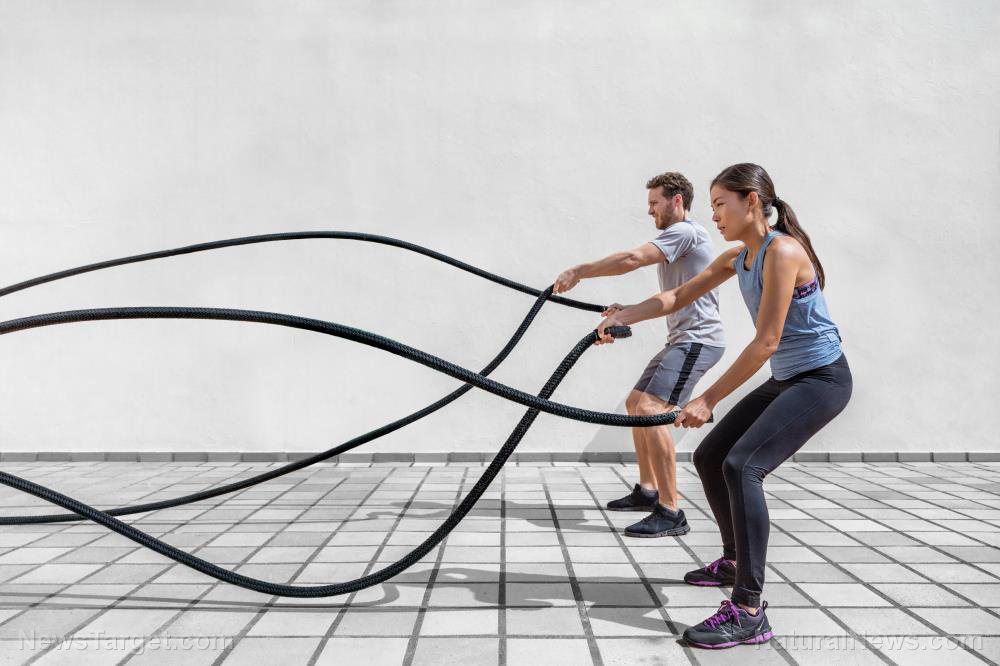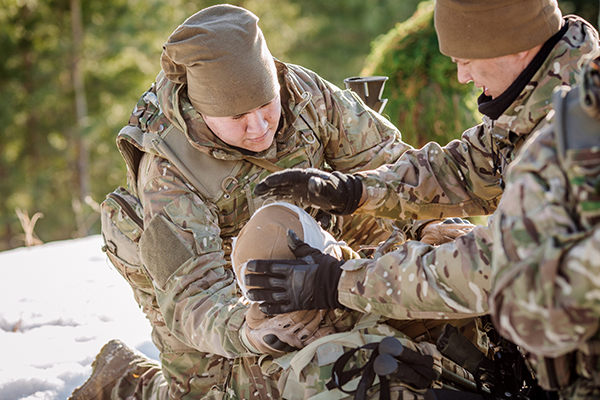Animal-assisted therapy has “paw-sitive” effects on brain injury patients
10/30/2019 / By Edsel Cook

The presence of man’s best friend – or any other beloved pet – can make a person feel better and at ease. A Swiss study showed that patients with brain injuries found it easier to interact with other people if they had an animal with them to provide comfort and reassurance.
When a person experiences a severe traumatic injury to his brain, his behavior may change. He may develop psychological issues that affect how he behaves toward other people. For instance, the patient may find it more difficult to empathize with another person’s emotional state, or he may become unable to express his feelings in the manner he intended.
Such serious mental issues make it much more difficult for patients with brain injuries to properly communicate with healthier people. Their reentry into normal society may prove much slower and more difficult.
An increasing number of clinics are adding animal-assisted therapy to their rehabilitation programs for brain injury patients. The animals help increase the participation and motivation of a person during social interactions.
Thanks to the encouraging effect of the therapeutic animals, the patient may improve or even fully recover his ability to communicate and interact with other people. (Related: Analyzing the effects of silibinin against prothrombin kringle-2-induced neurodegeneration.)
Can animal-assisted therapy help patients with brain injury socialize better?
Researchers at the University of Basel (Basel) looked for ways to improve the social competence and emotional involvement of brain injury patients during therapeutic sessions. They found that animal-assisted therapy might increase the ability of a patient to socialize and empathize with their therapists and with other people.
Less than 12 hours left to enjoy incredible deals at the Health Ranger Store's Superfoods and Supplements Black Friday and Cyber Monday Flash Sale event. Our wide selection of best-selling vitamins and minerals, superfoods and more will be available at up to 51% OFF. This limited-time sale is going on NOW and runs through midnight, tonight... only while supplies last. See all the great deals here.
For their study, the researchers worked with REHAB Basel, the university’s clinic that helps patients recover from nervous system injuries. They also collaborated with the Swiss Tropical and Public Health Institute (Swiss TPH).
The researchers evaluated the effectiveness of animal-assisted therapy on people with acquired brain injuries. They studied adult in-patients who were getting treated at REHAB Basel.
The 19 participants underwent conventional therapy. They also received animal-assistance therapy in the form of guinea pigs, small breeds of pigs, rabbits, and sheep.
Throughout more than 200 therapy sessions, the researchers recorded and evaluated the social behavior of the patients with and without the animal assistants. They also noted the mood and the satisfaction of the participants, as well as their motivation levels during the treatment.
Motivation plays a significant role in therapies. The higher the motivation of a patient, the better the chances of a successful treatment.
Animals increased the sociability and motivation of patients
The Basel study found that brain injury patients participated more actively in social interactions during animal-assisted therapy sessions than during conventional approaches.
In the presence of a therapeutic animal, the participants displayed almost twice as many positive emotions. They also interacted more often, using both verbal and non-verbal forms of communication to express themselves.
While animal-assisted therapy did not seem to mitigate or affect anger, rage, or other negative emotions experienced by the participants, it did influence more positive emotions.
The presence of an animal during the therapy session made a patient more likely to get satisfied with his progress. The animal also increased their motivation to participate more actively during rehabilitation.
Assessments made by the participating REHAB Basel therapists supported the analysis of the researchers.
“Animals can be relevant therapeutic partners, because they motivate patients to care for the animal,” explained Basel researcher Dr. Karin Hediger, the lead investigator of the study. “Secondly, animals provide a stimulus for patients to actively engage in the therapeutic activities.”
So if you or someone you know ever experience a severe traumatic brain injury, ask about the possibility of receiving animal-assisted therapy alongside the standard neurorehabilitation treatment.
Sources include:
Tagged Under: alternative medicine, alternative treatment, animal therapy, animals, brain function, brain health, Brain Injury, cognitive health, dogs, Pets, rehabilitation, therapy animals, therapy dogs, traumatic brain injury




















